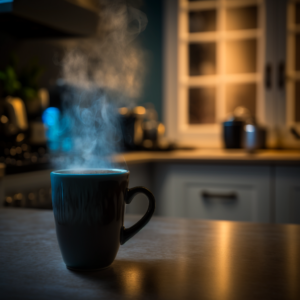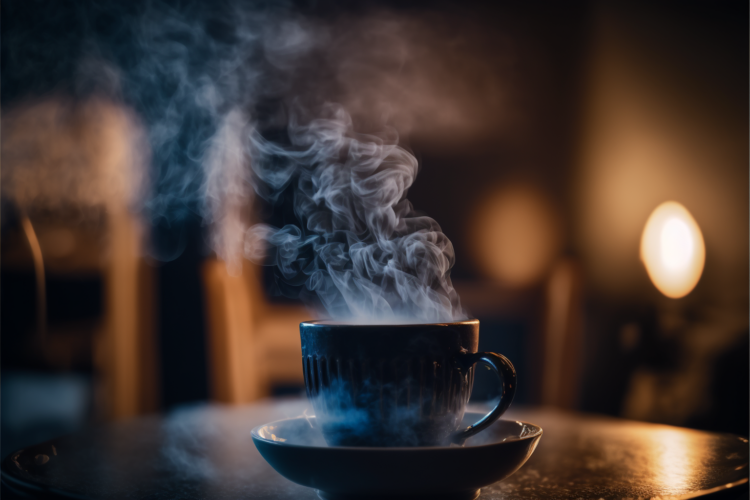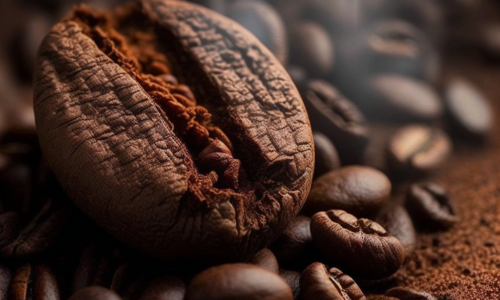Have you ever wondered what decaf coffee is and how it differs from regular coffee? We’re here to help you unravel the mystery. In this article, we will explore the world of decaf coffee and provide you with everything you need to know about this popular alternative to your favorite caffeinated beverage.
What is Decaf Coffee?
Decaf coffee, short for decaffeinated coffee, is coffee that has had at least 97% of its caffeine removed. This allows people to enjoy the rich taste of coffee without experiencing the stimulating effects of caffeine, making it a popular choice for those who are sensitive to caffeine or prefer to consume it in moderation.
The Decaffeination Process
There are several methods for removing caffeine from coffee beans, including the Swiss Water Process, the Carbon Dioxide Process, and Solvent-Based Processes. Let’s take a closer look at each of these methods.
Swiss Water Process
The Swiss Water Process is a chemical-free method that uses water and osmosis to remove caffeine from coffee beans. This process preserves the coffee’s flavor and aroma, making it a popular choice for high-quality decaf coffee.
Carbon Dioxide Process
The Carbon Dioxide Process uses high pressure and carbon dioxide to extract caffeine from coffee beans. This method is considered eco-friendly and maintains the beans’ natural flavors.
Solvent-Based Process
Solvent-Based Processes use chemicals, such as methylene chloride or ethyl acetate, to dissolve caffeine from coffee beans. Although some people may be concerned about chemical residues, these processes are generally considered safe and efficient.

Decaf Coffee: Nutritional Facts
Decaf coffee is similar to regular coffee in terms of nutritional content, with the exception of its reduced caffeine levels. It still contains essential nutrients, such as antioxidants, vitamins, and minerals that can provide health benefits.
Health Benefits of Decaf Coffee
- Reduced risk of heart disease: Decaf coffee may help lower the risk of heart disease by reducing inflammation and improving blood vessel function.
- Lowered anxiety levels: Since caffeine can trigger anxiety in some individuals, switching to decaf may help alleviate symptoms.
- Better sleep: Decaf coffee allows you to enjoy your favorite beverage without compromising your sleep quality due to caffeine’s stimulating effects.
Potential Downsides of Decaf Coffee
- Less caffeine: Some people rely on the stimulating effects of caffeine to stay alert and focused. Decaf coffee may not provide the same level of mental stimulation.
- Possible chemical residues: Although the decaffeination process is generally considered safe, there may still be concerns about potential chemical residues in decaf coffee.
How Does Decaf Coffee Taste?
While decaf coffee has a similar taste to regular coffee, some people might notice subtle differences in flavor and aroma. The decaffeination process can sometimes result in a slightly milder taste, but high-quality decaf coffee should still offer a satisfying flavor profile.
Best Practices for Brewing Decaf Coffee
To get the most out of your decaf coffee, follow these best practices:
- Choose high-quality beans: Look for decaf coffee that uses the Swiss Water Process or Carbon Dioxide Process, as these methods tend to preserve the coffee’s flavor and aroma.
- Grind your beans fresh: Freshly ground coffee will produce a richer and more robust flavor.
- Use the correct water-to-coffee ratio: A standard guideline is to use 2 tablespoons of ground coffee for every 6 ounces of water.
- Experiment with brewing methods: Try different brewing methods, such as pour-over, French press, or drip coffee makers, to find your preferred taste.
Popular Decaf Coffee Brands
Some popular decaf coffee brands include:
- Kicking Horse Coffee
- Peet’s Coffee
- Starbucks
- Lavazza
- Green Mountain Coffee Roasters
Decaf Coffee vs. Regular Coffee
Decaf coffee is a great alternative for those who want to enjoy the taste of coffee without the stimulating effects of caffeine. While it may have a slightly different flavor profile, it still offers many of the same health benefits and can be a suitable choice for various lifestyles.
Frequently Asked Questions
- Is decaf coffee completely caffeine-free?Decaf coffee is not entirely caffeine-free, but it has significantly lower caffeine content compared to regular coffee. Decaf coffee typically contains 2-5 milligrams of caffeine per 8-ounce cup, while regular coffee contains 95-200 milligrams.
- Is decaf coffee safe during pregnancy?Decaf coffee can be a safer choice for pregnant women who want to limit their caffeine intake. It’s essential to consult with your healthcare provider for personalized recommendations.
- Can I drink decaf coffee before bed?Decaf coffee contains significantly less caffeine than regular coffee, making it a better option for those who want a warm beverage before bedtime without disrupting their sleep.
- Do decaf coffee beans look different from regular coffee beans?Decaf coffee beans are generally indistinguishable from regular coffee beans in terms of appearance. The primary difference lies in their caffeine content.
- Is decaf coffee suitable for individuals with heart conditions?Decaf coffee can be a better choice for individuals with heart conditions or those sensitive to caffeine. However, it’s crucial to discuss your options with your healthcare provider.



